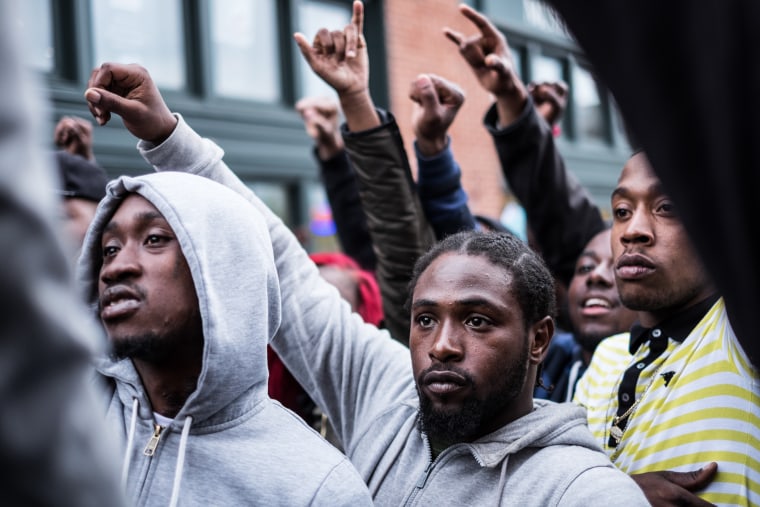Last Saturday, Devin Allen, snapped a photo at the intersection of Charles and Putnam Street in Baltimore, not knowing the impact the image would have on his city and his personal life.
The black and white photo, which went viral moments after Allen tweeted it out, profiles a young black male with a handkerchief tied around his face, running away from the police, sketched in stark relief in the far distance.
By Thursday it was on the cover of one of America’s most notable publications, TIME Magazine.
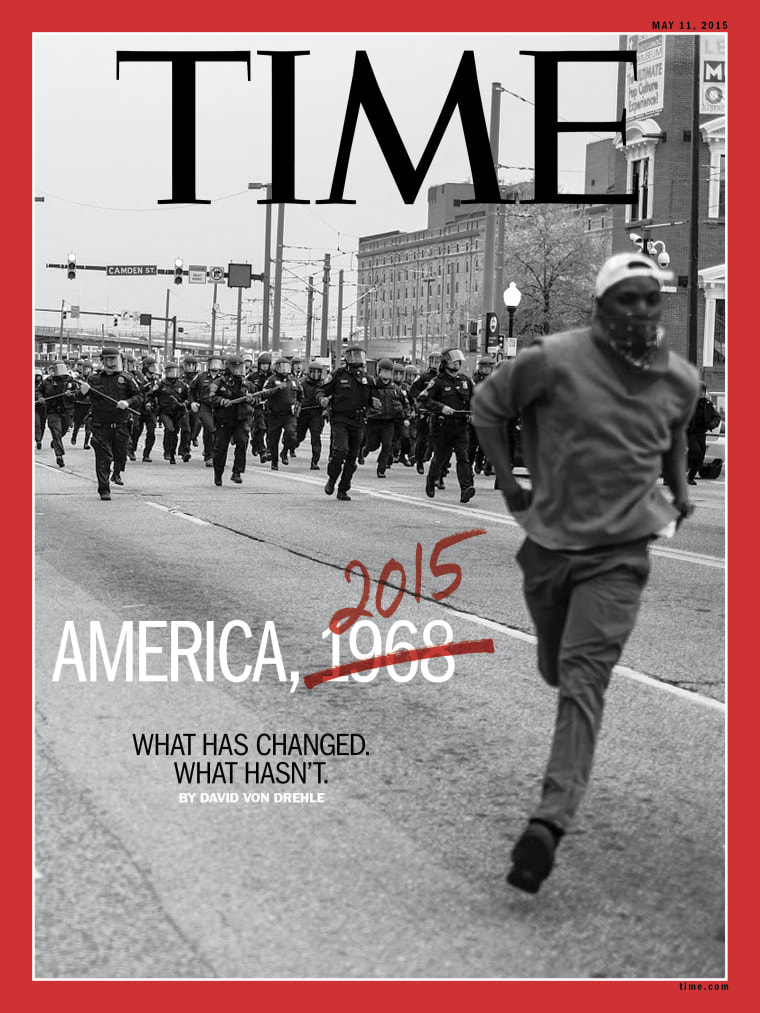
And Allen's life quickly changed.
“I went from, ‘Hey that’s Devin,’ to ‘Oh, he’s like Kendrick Lamar with a camera. He’s the next Gordon Parks,’” Allen, 26, said.
Allen along with over 2,000 protestors had gathered in downtown Baltimore on Saturday to protest the death of 25-year old Freddie Gray, who died due to a spinal injury after being arrested by police.
Allen said the protest splintered off into three separate groups, dispersing down the streets of downtown Baltimore. When tensions simmered between protestors and Orioles fans that had just left Camden Yards, Allen was right in the midst.
“I was climbing all over the place, I was trying to catch everything,” he said.
While a third group clashed with police, in front of Camden Yards, Allen says there were several moments he captured: one of a black police officer tearing up while a friend of Freddie Gray poured out his grief, and another of protestors facing officers with their hands up.
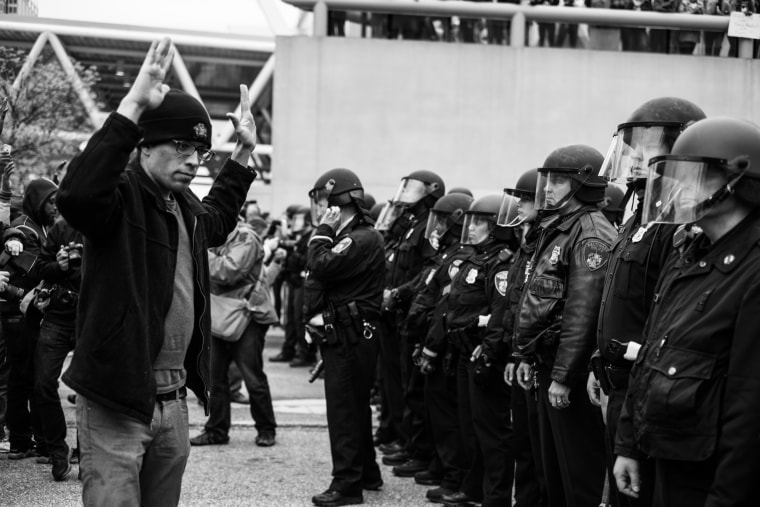
The young photographer believes that coverage of the protests characterized the men and women who look like him as “thugs,” something he vehemently denounces.
“Now you want to call us thugs after you’ve ignored us for so long,” Allen said.
And the weight of who lives and who dies is something that Allen knows all too well. He says he’s been racially profiled and harassed by the police.
And when it comes to the friends he’s lost due to street violence Allen said, “I stopped counting at (age) 20.”
Allen’s increasing notoriety has given him a platform, one he doesn’t take lightly.
“People got to stop feeling like they’re too small,” he said. “Our voices are more powerful than ever, and people don’t understand that. I went from a local photographer, to being interviewed everyday. I can tell these kids it’s not a cliché, dreams really do come true.”
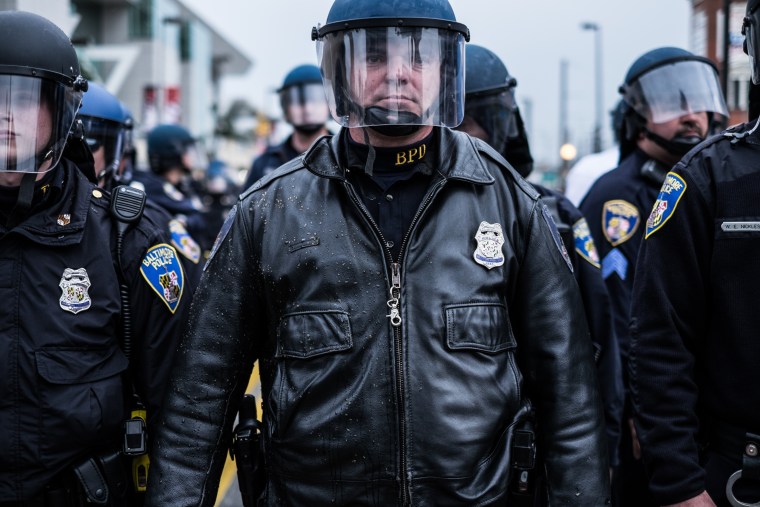
Allen said he’s always been creative, indulging in art and fashion. Raised in West Baltimore by a single mother and his grandmother, he says he was unfocused. His road to a life behind the lens started when his daughter was born five years ago.
Growing up without a father bothered him and he's determined to stop the cycle.
“All the love that I didn’t get from my father, I’m putting into my daughter.”
In 2012, he took up photography, using his images on t-shirts he created. After being laid off from Transamerica in 2013, he convinced his grandmother to purchase a professional Cannon camera from Best Buy with her store credit card, something he’s forever grateful for.
Allen still has a full-time job, working nights with people affected by autism. He says the hours allow him time to take photos during the day. “I changed my whole life style to pursue this,” Allen said.
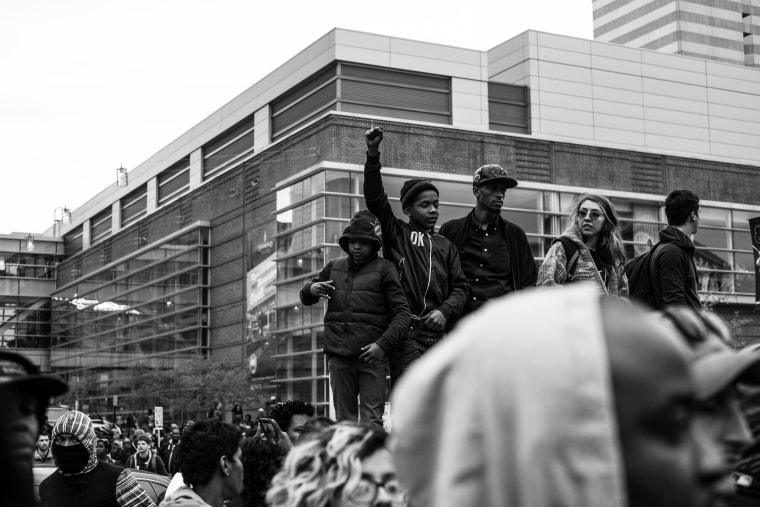
Baltimore is a fairly small town, Allen says, where "everybody knows somebody that knows somebody."
He didn't know Freddie Gray, but says, “this time, it’s bigger than police killing black men."
